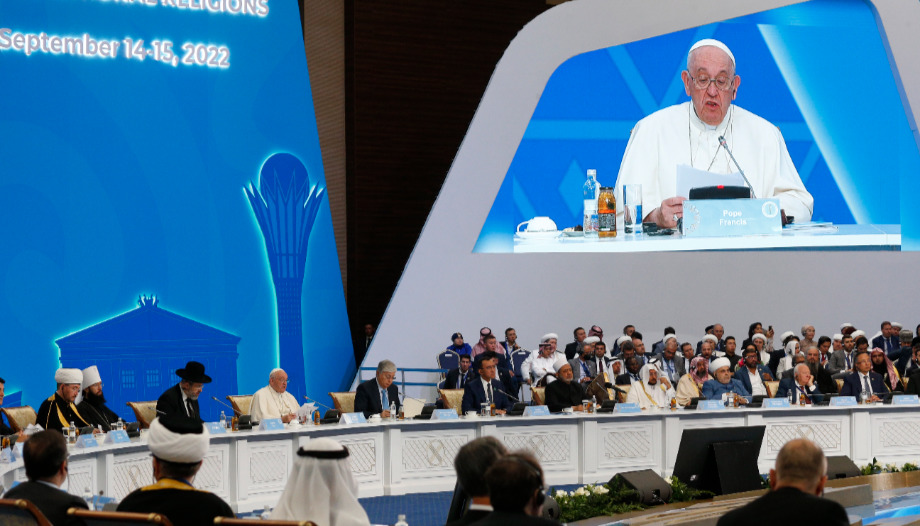Richard Dawkins, one of the greatest popularizers of atheism today, frequently insists that religions are a threat to the maintenance of peace in contemporary societies. However, less than 7% of all wars in history have been caused by religious conflicts, as can be easily verified in the 2004 "Encyclopedia of Wars" by Charles Phillips and Alan Axelrod. Nevertheless, it must be recognized that the thesis that religion usually generates violence is a common opinion for many. That is why meetings between the leaders of the major religions, such as the one that took place on September 14 and 15 in Kazakhstan, are particularly relevant, especially if they show cordiality and a common outlook. At his audience today, Wednesday, September 21, Pope Francis took stock of his recent trip to Kazakhstan.
Kazakhstan trip review
The Holy Father participated in the VII "Congress of the Leaders of World and Traditional Religions"This is an initiative that began twenty years ago under the auspices of the country's political authorities. The Pope emphasized "Kazakhstan's vocation to be a country of encounter: in fact, about one hundred and fifty ethnic groups live there and more than eighty languages are spoken. This vocation, which is due to its geographical characteristics and its history - this vocation to be a country of encounter, of culture, of languages - was welcomed and embraced as a path that deserves to be encouraged and sustained".
In the Asian country, the pontiff encouraged the construction of "an ever more mature democracy, capable of responding effectively to the demands of the whole of society. While recognizing that this is an arduous and time-consuming task, Francis acknowledged "that Kazakhstan has made very positive choices, such as saying 'no' to nuclear weapons and to good energy and environmental policies," a gesture he described as "courageous".
Religions, promoters of peace
The Pope praised the efforts of Kazakhstan as a place of multicultural and multireligious encounter, and its efforts for the promotion of peace and human fraternity. It was the seventh edition of this congress, something surprising in a country that has 30 years of independence. "This means putting religions at the center of the commitment to the construction of a world in which we listen to each other and respect each other in diversity. And this is not relativism, no: it is listening and respect. And this must be recognized by the Kazakh government which, having freed itself from the yoke of the atheist regime, now proposes a path of civilization that keeps politics and religion together, without confusing or separating them, clearly condemning fundamentalism and extremism. It is a balanced and united position".
The Congress approved a "Final Declaration" in continuation with the one signed in Abu Dhabi in February 2019 on the human fraternity. Since John Paul II convened the interreligious day of prayer for peace in Assisi in 1986, meetings of the leaders of the major religions have been held with a certain regularity. The Pope pointed out that this meeting was criticized by some people who failed to see its value.
The Church in Kazakhstan
The Holy Father also had a meeting and Mass with the Catholic faithful of Kazakhstan, a minority in the country as a whole. He pointed out that even though they are few, "this condition, if lived with faith, can bear evangelical fruits: above all the beatitude of littleness, of being leaven, salt and light relying solely on the Lord and not on some form of human relevance. Moreover, the numerical scarcity invites us to develop relationships with Christians of other confessions, and also fraternity with all. Therefore, small flock, yes, but open, not closed, not defensive, open and trusting in the action of the Holy Spirit".
The Eucharist celebrated in the Expo 2017 square coincided with the feast of the Holy Cross, a place surrounded by avant-garde architecture. Precisely the Pope took advantage of this circumstance to point out that we live in a world in which progress and setbacks are intermingled, yet "the Cross of Christ remains the anchor of salvation: a sign of hope that does not disappoint because it is founded on the love of God, merciful and faithful."








